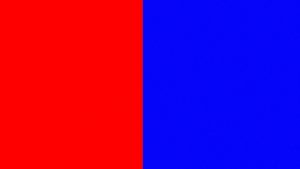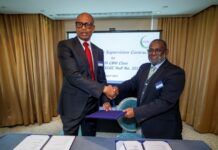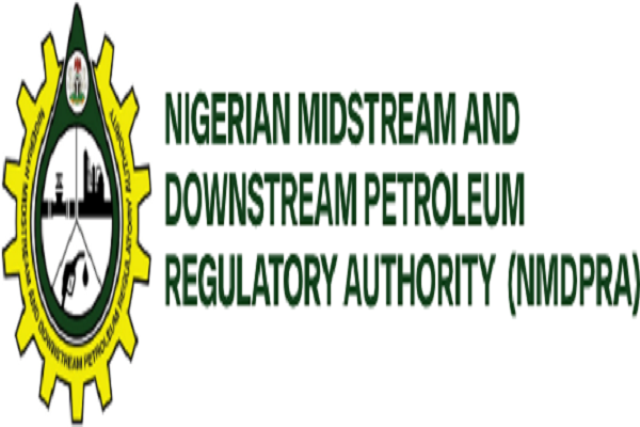Ime Akpan
The Nigerian Midstream and Downstream Petroleum Regulatory there Authority (NMDPRA) yesterday denied that dirty fuel was imported into the country as claimed by the vice president, oil and gas, at Dangote Industries Limited (DIL), Mr Devakumar Edwin
The executive director of distribution systems, storage and retailing infrastructure at the NMDPRA, Mr Ogbugo Ukoha, stated this while briefing journalists after a meeting with the oil marketers and local refiners at the headquarters of the NMDPRA in Abuja yesterday.
Ukoha was reacting to the statement credited to Edwin that of NMDPRA was granting licences indiscriminately to marketers to import dirty refined products into the country.
“In spite of the fact that we are producing and bringing out diesel into the market, complying with ECOWAS regulations and standards, licences are being issued, in large quantities, to traders who are buying the extremely high sulphur diesel from Russia and dumping it in the Nigerian Market.
“Since the US, EU and UK imposed a Price Cap Scheme from 5th February, 2023 on Russian Petroleum Products, a large number of vessels are waiting near Togo with Russian ultra-high sulphur diesel and, they are being purchased and dumped into the Nigerian Market.
“In fact, some of the European countries were so alarmed about the carcinogenic effect of the extra high sulphur diesel being dumped into the Nigerian Market that countries like Belgium and the Netherlands imposed a ban on such fuel being exported from its country, into West Africa, recently. It is sad that the country is giving import licences for such dirty diesel to be imported into Nigeria, when we have more than adequate petroleum refining capacity locally.
“It would be recalled that in May, Belgium and Netherland adopted new quality standards to halt the export of cheap, low-quality fuels to West Africa, harmonising its standards with those of the European Union.
‘’These measures synchronise fuel export standards with the European domestic market, specifically targeting diesel and petrol with high sulphur and chemical content. Historically, these fuels, with sulphur content reaching up to 10,000 ppm, were exported at reduced rates to countries such as Nigeria and other West African consumers.
“Belgium’s minister of environment, Zakia Khattabi, announced that his country followed the Netherland, which in April 2023, also prohibited the export of low-quality petrol and diesel to West Africa via the ports of Amsterdam and Rotterdam,” the Dangote vice president had told journalists.
However, Ukoha said “there is no dirty fuel that we would encourage to come into Nigeria and there is no dirty fuel being brought in.”
Ukoha explained that the Economic Community of West African States (ECOWAS) heads of state in 2020 endorsed a declaration adopting the Afri-5 fuel roadmap that requires that certain products have minimum 50 parts per million (ppm) litres of sulphur.
“Whilst it encouraged almost an immediate enforcement against imports to comply with that standard, the same treaty deferred enforcement for local refineries up to 31 December 2024.”
He said section 317 of the Petroleum Industry Act (PIA) 2021 also captured and upheld this ECOWAS treaty.
“So as an authority, what have we done since we came into being? We started by engendering compliance. We saw a downward trend up to December 2023. In December and in January of this year, we noticed a spike in the sulphur contents of products being imported. And we again now began strong enforcement from 1 February.
“I am happy to tell Nigerians that up until as we speak in June, the average sulphur content in every Automotive Gas Oil (AGO) that is brought into Nigeria is far below, the average is far below what the 50 ppm provision is in the law.
“With the local refineries, remember that declaration deferred it and so they continue to produce at a higher level. But we are not very anxious about that because even the new refineries that are coming in have within their design of the plant desulphurisation units that will see in the nearest future that sulphur going down as low as 10 ppm,” he said.
He assured that this is a mandate that the authority takes very seriously and that it is determined to guarantee the well-being and health of Nigerians.
“There is no dirty fuel that we would encourage to come into Nigeria. I said there is no dirty fuel being brought in and I have given you the statistics for June. What we have on the average from imports have continued to go down from 200 on the average ppm and now we have it far below the 50 ppm that is in the law, provided under the law.
“And then with the refineries, there is no need to enforce that until the end of this year. But they themselves are already taking steps to see that is also guaranteed,” he said.
Speaking on the outcome of the meeting, Ukoha said the meeting was aimed at promoting collaboration in a manner that ensures and guarantees energy security within the country.
“Our discussions covered considerable issues, very significant and profound. Issues of pricing, competition have been raised and we will continue to engage with every operator to see that we land at a place that is ultimately beneficial to Nigeria and Nigerians,” he added.
*With Premium Times report





























































